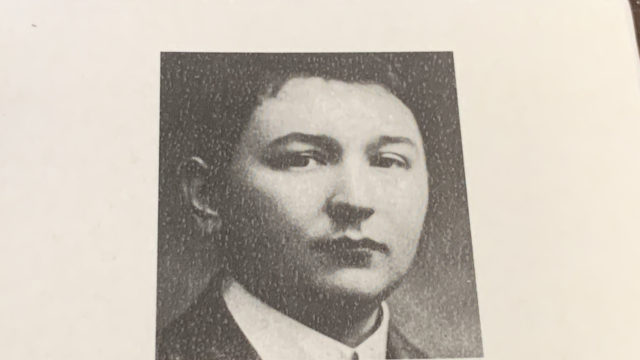2017年3月25日 雪のち晴れ
W. Somerset Maugham, Cakes and Ale, Vintage Classics, 2000 (First published in 1930 by William Heinemann)
オーディオブック Cakes and Ale, Written by: W. Somerset Maugham, Narrated by: James Saxon, Length: 6 hrs and 33 mins, Unabridged Audiobook, Release Date:01-13-11, Publisher: Audible Studios
補註 私の手に入れたVintage本は、なぜか珍しく古いブックカバーが掛かっていて、イギリスのどこかの図書館で貸し出し用に供されていたもののようだ。2004年に購入されて、2011年の1月まで、盛んに貸し出されていて、それから古本屋さんの手に落ちたもののようだ。2004年の購入だから、そんなに古い本というわけではないが、大勢の人に読まれたためか、多くの陽射しも浴びたせいか、紙が激しく茶色に変色して古色を帯びている。
補註 ・・今回、私はオーディオブックを聴きながら、緑や赤のボールペンで一杯書き込みしながら2回通り読み(聴き)通した。Cakes and Ale というのは不思議なタイトルであるが、主人公のロージーと語り手(一人称、この場合はモームの化身である作家のアッシェンデン氏)との関わり合いの中で自然に意味がわかるように書かれている(ネタバレになるのでここでは記載しない)。
主人公のロージーは、モームの好きなタイプの女性であり、終始好意的に描かれている。話の進め方は「月と六ペンス(1919年)」の場合と似ている。構成はさすがストーリー・テラー、モームの面目躍如である。
**
‘Was it that death Driffield described in The Cup of Life?’
‘Yes, That’s it. I always thought it so funny of Ted. He couldn’t bear to speak of it, any more than I could, but he wrote it all down; he didn’t leave out a thing; even little things I hadn’t noticed at the time he put in, and then I remembered them. You’d think he was just heartless, but he wasn’t, he was upset just as much as I was. When we used to go home at night he’d cry like a child. Funny chap, wasn’t he?’
It was The Cup of Life that had raised such a storm of protest; and it was the child’s death and the episode that followed it that had especially brought down on Driffield’s head such virulent abuse. (ibid., pp189-190)
**
補註 ところで、このヴィンティジ版の表紙にはタイトルの下に、
‘The modern writer who has influenced me the most’ George Orwell
と書かれている。また裏表紙には、
‘One of my favorite writers’ Gabriel Garcia Marquez
と書かれている。私のよく読んでいるオーウェルやガルシア・マルケスがモームを好きだったことは、良く理解できるような気がする。
このことを親しい友人に話したら、オーウェルもガルシア・マルケスも、モーム同様に物凄い読書家であり、同じ読書好きのモームという作家のことを好きだったのではないか、とのこと。(作家は一般に、とても読書好きのグループと、自分は書いても他者の書いたものをほとんど読まないグループ、その二つのグループに分けることができるとのこと。)
たとえばオーウェルであれば、ディケンズ本なんか山のように読んでいて、(批判しつつも)とてもディケンズのことが好きなのがわかる。モームは、オースティンが好きだったし、またディケンズのことも好きだったようだ。
この Cakes and Ale では語り手の文学論がさりげなく語られているところも魅力である。たとえば・・
‘I think the instinctive judgements I formed when I was a boy were right. They told me Carlyle was a great writer and I was ashamed that I found the French Revolution and Sartor Resorts unreadable. Can anyone read them now? ・・ In my heart I found him (George Meredith) affected, verbose and insincere. A good many people think so too now. (ibid., p27)
’And what did you think much of then that you think much of still?’
‘Well, Tristram Shandy and Amelia and Vanity Fair, Madame Bovary, La Chartreuse de Parme, and Anna Karenina. And Wordsworth and Keats and Verlaine.’
*****
補註 Amelia ・・ウィキペディアによると・・・
Amelia is a sentimental novel written by Henry Fielding and published in December 1751. It was the fourth and final novel written by Fielding, and it was printed in only one edition while the author was alive, although 5,000 copies were published of the first edition. Amelia follows the life of Amelia and Captain William Booth after they are married. It contains many allusions to classical literature and focuses on the theme of marriage and feminine intelligence, but Fielding’s stance on gender issues cannot be determined because of the lack of authorial commentary discussing the matter. Although the novel received praise from many writers and critics, it received more criticism from Fielding’s competition, possibly resulting from the “paper war” in which the author was involved.
*****
********************************************





